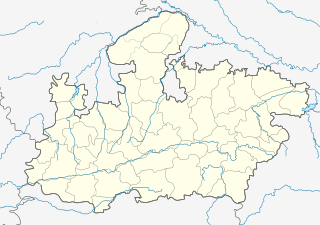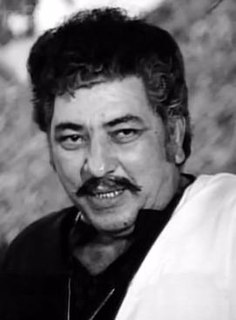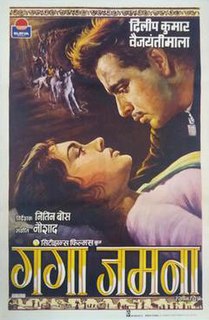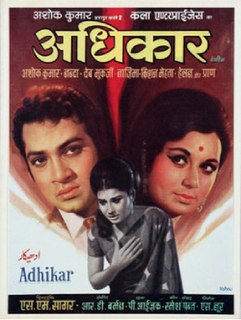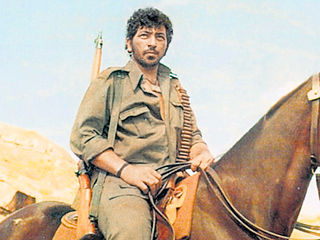This article needs additional citations for verification .(March 2009) (Learn how and when to remove this template message) |
- For the Pakistani pop singer, see Saleem Javed.
Salim-Javed were a screenwriting duo in the Indian film industry, composed of Salim Khan and Javed Akhtar. They are noted for being the first Indian screenwriters to achieve star status, [1] becoming the most successful Indian screenwriters of all time. [2] They are regarded as "Hindi cinema's greatest screenwriters". [3] They worked together on 24 films during 1971–1987, of which twenty were commercially and critically successful films. They worked together on 22 Bollywood films, as well as two Kannada films.
Screenwriting, also called scriptwriting, is the art and craft of writing scripts for mass media such as feature films, television productions or video games. It is often a freelance profession.

Salim Abdul Rashid Khan is an Indian film actor, producer and screenwriter. As a screenwriter, he wrote the screenplays, stories and scripts for numerous Bollywood films. In Hindi cinema, Khan is best known for being one half of the prolific screenwriting duo of Salim-Javed, along with Javed Akhtar. The duo Salim-Javed were the first Indian screenwriters to achieve star status, becoming the most successful Indian screenwriters of all time, and are regarded as "Hindi cinema's greatest screenwriters". While working together, Salim Khan was largely responsible for developing the stories and characters, while Javed Akhtar was largely responsible for developing the dialogues.

Javed Akhtar is an Indian political activist, poet, lyricist and screenwriter, originally from Gwalior area. He is a recipient of the Padma Shri (1999), Padma Bhushan (2007), the Sahitya Akademi Award as well as five National Film Awards. In early part of his career he was a screenplay writer, creating movies like Deewar, Janzeer and Sholay. Later he left screenplay writing and became a lyricist and social-political activist.
Contents
- Before teaming up
- Salim Khan
- Javed Akhtar
- History
- After teaming up
- After their split
- Contributions
- Screenwriter profession
- Bollywood cinema
- South Indian cinema
- Indian society
- International cinema
- Filmography
- Bollywood films
- Kannada films
- Awards
- Filmfare Awards
- British Film Institute
- References
- External links
Salim-Javed revolutionized Indian cinema in the 1970s, [4] transforming and reinventing the Bollywood formula, and pioneering the Bollywood blockbuster format. [3] A significant departure from the romance films that had previously dominated Bollywood, [5] Salim-Javed pioneered cultural phenomena such as the "angry young man" character archetype, [3] the masala film, [6] the Dacoit Western genre, [7] and Bombay underworld crime films. [8] Their films launched the careers of major filmmakers and movie stars, [3] such as Amitabh Bachchan and Superstar Rajinikanth. [9] Salim-Javed's films also had a wider impact on Indian society, with themes relevant to the socio-economic and socio-political climate of 1970s India, especially during The Emergency period, such as urban slum poverty, political corruption, and organized crime, while presenting progressive, feminist and anti-establishment themes, which resonated with Indian audiences in the 1970s and early 1980s. During their time working together, the duo won six Filmfare Awards, out of ten nominations. [10] Their films are also among the highest-grossing Indian films of all time, including Sholay (1975), the highest-grossing Indian film ever at the time, as well as films such as Seeta Aur Geeta (1972), Zanjeer (1973), Deewaar (1975), Kranti (1981), and the Don franchise. Sholay is also considered to be one of the greatest Indian films of all time. [11]
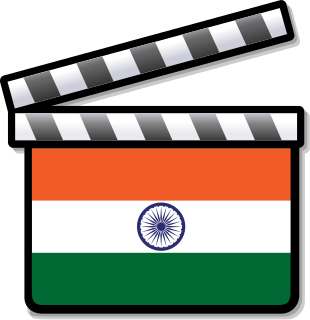
Hindi cinema, often known as Bollywood and formerly as Bombay cinema, is the Indian Hindi-language film industry based in Mumbai. The term is a portmanteau of "Bombay" and "Hollywood". The industry is related to other regional industries, making up Indian Cinema – the world's largest by number of feature films produced.
A blockbuster is a work of entertainment—especially a feature film, but also other media—that is highly popular and financially successful. The term has also come to refer to any large-budget production intended for "blockbuster" status, aimed at mass markets with associated merchandising, sometimes on a scale that meant the financial fortunes of a film studio or a distributor could depend on it.

Romance films or romance movies are romantic love stories recorded in visual media for broadcast in theaters and on TV that focus on passion, emotion, and the affectionate romantic involvement of the main characters and the journey that their love takes them through dating, courtship or marriage. Romance films make the romantic love story or the search for strong and pure love and romance the main plot focus. Occasionally, romance lovers face obstacles such as finances, physical illness, various forms of discrimination, psychological restraints or family that threaten to break their union of love. As in all quite strong, deep, and close romantic relationships, tensions of day-to-day life, temptations, and differences in compatibility enter into the plots of romantic films.
While working together, Salim Khan was largely responsible for developing the stories and characters, which were considered unconventional at the time, while Javed Akhtar was largely responsible for writing the dialogues. [12] Many of the dialogues they wrote for their films have become famous. Although the dialogues are often referred to as Hindi, they are actually mostly in Urdu, a register of the Hindustani language. Coming from backgrounds in Urdu literature, they mostly included vocabulary from Urdu, and wrote their dialogues in Urdu script, with the Urdu dialogues then transcribed by an assistant into Devanagari script so that Hindi readers could also read the Urdu dialogues. [13] [14] [15]

Hindi or Modern Standard Hindi, is a standardised and Sanskritised register of the Hindustani language. In India, the official standardized variety of the language is based primarily on the Khariboli dialect of Delhi and other nearby areas of northern India. Hindi, written in the Devanagari script, is one of the two official languages of the Government of India, along with the English language. It is one of the 22 scheduled languages of the Republic of India. Contrary to the popular belief, Hindi is not the national language of India because no language was given such a status in the Indian constitution.

Urdu —or, more precisely, Modern Standard Urdu—is a Persianised standard register of the Hindustani language. It is the official national language and lingua franca of Pakistan. In India, it is one of the 22 official languages recognized in the Constitution of India, having official status in the six states of Jammu and Kashmir, Telangana, Uttar Pradesh, Bihar, Jharkhand and West Bengal, as well as the national capital territory of Delhi.
In sociolinguistics, a register is a variety of language used for a particular purpose or in a particular communicative situation. For example, when speaking officially or in a public setting, an English speaker may be more likely to follow prescriptive norms for formal usage than in a casual setting; examples might include pronouncing words ending in -ing with a velar nasal instead of an alveolar nasal, choosing words that are considered more "formal", and refraining from using words considered nonstandard, such as ain't.
The duo made the writer's role popular with their names appearing in the posters of the films, and in some films they shared up to 25% of the profit. Their association lasted until 1982, when both decided to split after which Javed Akhtar moved into writing lyrics for around 80 films and scripts for 20 films from 1981 till present times, while Salim Khan wrote for 10 scripts between 1983–1996. They are credited together on two films after the split, Zamana (1985) and Mr. India (1987), due to these scripts being written earlier and made into film later after their split. In addition, their films had many South Indian remakes, which were often licensed directly from Salim-Javed, who owned the South Indian remake rights to their films.

Zamana (Time) is a 1985 Indian Bollywood film, written by Salim-Javed, directed by Ramesh Talwar, and starring Rajesh Khanna, Rishi Kapoor, Poonam Dhillon and Ranjeeta. Kulbhushan Karbanda, Girish Karnad, Avataar Gill, Mac Mohan, Satyen Kapu, Om Puri and Pillo Wadia form the supporting cast. The film wasa flop at the box office.

Mr. India is a 1987 Indian Hindi-language superhero film directed by Shekhar Kapur, based on a screenplay written by Salim-Javed. It stars Sridevi and Anil Kapoor in the lead roles. Amrish Puri, Ashok Kumar, Satish Kaushik, Ajit Vachani and Sharat Saxena are featured in supporting roles.
The cinema of South India is used to refer collectively to the five different film industries of South India: Kannada, Malayalam, Tamil, Telugu and Tulu film industries, as a single entity. They are based in Bengaluru, Kochi, Chennai, Hyderabad and Mangaluru respectively.


